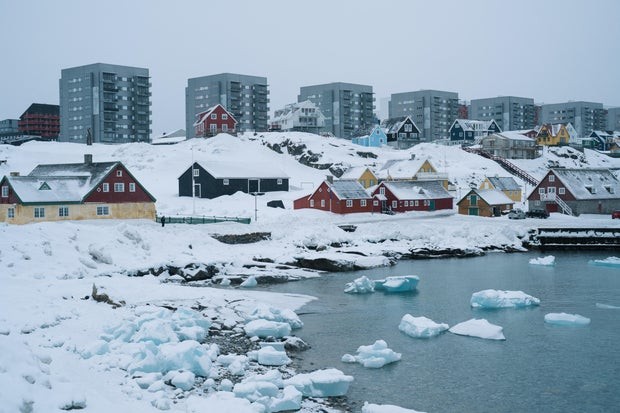The Trump administration’s interest in acquiring Greenland has sparked international debate and raised questions about the motivations behind this ambition. While Greenland’s Prime Minister has firmly stated that the island is not for sale, understanding the reasons why Trump desires Greenland requires examining factors ranging from national security to resource potential and geopolitical strategy.
Greenland’s Strategic Importance Fuels Trump’s Desire
Greenland’s geographic location, nestled between the U.S., Russia, and Europe, makes it strategically significant for both economic and defense purposes. The melting Arctic ice has opened up new shipping routes, increasing the island’s importance in global trade and navigation. Greenland also hosts the northernmost U.S. military base, Thule Air Base, further highlighting its strategic value for American defense operations.
Trump has repeatedly emphasized Greenland’s importance for national security, citing the increasing presence of Chinese and Russian vessels in the region. He believes that controlling Greenland would allow the U.S. to better monitor and counter potential threats from these nations in the Arctic. This concern aligns with broader anxieties about China and Russia’s growing influence in the Arctic region and their potential to challenge American dominance.
Greenland’s Untapped Resources: A Lure for Trump
Beyond strategic location, Greenland boasts significant natural resources, including oil, natural gas, and a wealth of minerals crucial for modern technologies. Rare earth elements, vital for electric vehicle batteries and other high-tech applications, are abundant in Greenland. This potential for resource extraction aligns with Trump’s focus on economic nationalism and reducing reliance on foreign sources for critical materials.
 Apartment buildings and houses are pictured in Nuuk, Greenland, on March 24, 2025.
Apartment buildings and houses are pictured in Nuuk, Greenland, on March 24, 2025.
Currently, China dominates the production of rare earth elements. Acquiring Greenland would potentially provide the U.S. with a domestic source of these vital resources, lessening dependence on China and strengthening its position in the global technology race. This desire to secure access to critical minerals aligns with the broader U.S. strategy of diversifying supply chains and reducing reliance on potentially adversarial nations.
Geopolitical Implications of Trump’s Greenland Ambitions
Trump’s pursuit of Greenland has broader geopolitical implications, signaling a willingness to challenge existing international norms and potentially reshape alliances. The move has been met with resistance from both Greenland and Denmark, highlighting the potential for diplomatic tensions and a re-evaluation of transatlantic relationships.
While the likelihood of the U.S. acquiring Greenland remains uncertain, the Trump administration’s interest underscores the strategic importance of the Arctic region in the 21st century. The convergence of national security concerns, resource competition, and geopolitical maneuvering in the Arctic makes Greenland a focal point of international interest and a potential flashpoint for future conflicts.
Conclusion: A Complex Web of Motivations
Trump’s desire for Greenland is driven by a complex interplay of national security concerns, economic interests, and geopolitical ambitions. While the acquisition remains unlikely, the pursuit itself highlights the growing strategic importance of the Arctic region and the intensifying competition between global powers for influence and resources. The future of Greenland remains intertwined with these larger global trends, making it a crucial territory to watch in the coming years.

